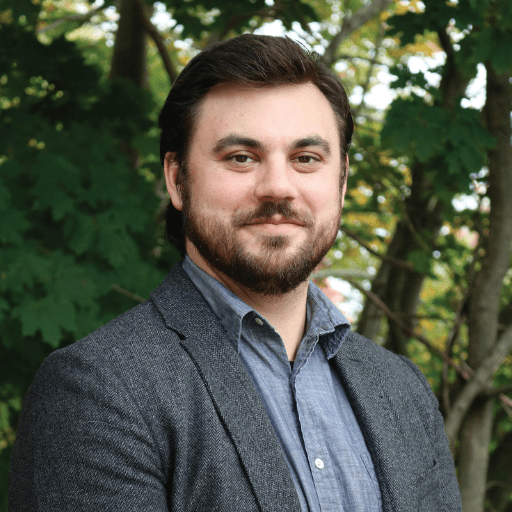Oliver Bradeen seems to have been destined to help others. He’s spent more than a decade in human services work, primarily with people living with substance use disorder.
As a graduate student, Bradeen interned with the Portland Police Department as a co-responder. He’d ride along with police to behavioral health calls when a mobile crisis worker would be helpful. In most cases, those situations involved drugs and alcohol.
He served as a bridge between law enforcement, mental health departments and substance use support. He’d connect people in crisis with community services, ranging from harm reduction to treatment and recovery services. He went on to become an employee of the police department and spent his time in an unmarked car responding to substance use incidents.
This co-response approach in the Portland Police Department served as the model for Maine’s OPTIONS program.
Bradeen now works full-time for the Portland Fire Department but still finds time to provide technical assistance to Maine’s OPTIONS Liaisons.
“I arrange coaching calls. I meet individually with Liaisons. We go over the logistics of being a Liaison and how to bridge law enforcement and mental health/substance use issues,” Oliver said. “I share my own experiences hoping they can learn from my successes and even more from my mistakes.”
He also emphasizes the need for Liaisons to take good care of themselves. “Sometimes you see people losing life right in front of you. You have to realize it’s OK to not be OK.”
Oliver has four core principles for being a successful Liaison:
1.) Be accepting and open to all people’s recovery, recognizing that everyone is different.
2.) Offer harm reduction services if a person is not ready to stop using drugs.
3.) Be aware of what makes the person in crisis uncomfortable.
4.) Set boundaries early on.
“It’s not about just showing up,” he explained. “It’s about building trust – it’s relationship-focused. Sometimes you are the only one who hears the person. It’s a time for compassionate support, not a legal system. The uniform makes people really nervous.”
This is part of the reason the co-response approach is successful. “I would make use of chance encounters with officers or hospital staff and have conversations about the nature of substance use and that people who use drugs are good people who have a disease. Everyone deserves to be treated respectfully. And, I encourage OPTIONS Liaisons to have those same conversations and build a more supportive community from health care to law enforcement to businesses, from within. You find moments of wonderful humanity in supporting people who use drugs.
This article was made possible with the support of the OPTIONS program and the Maine Office of Behavioral Health.



